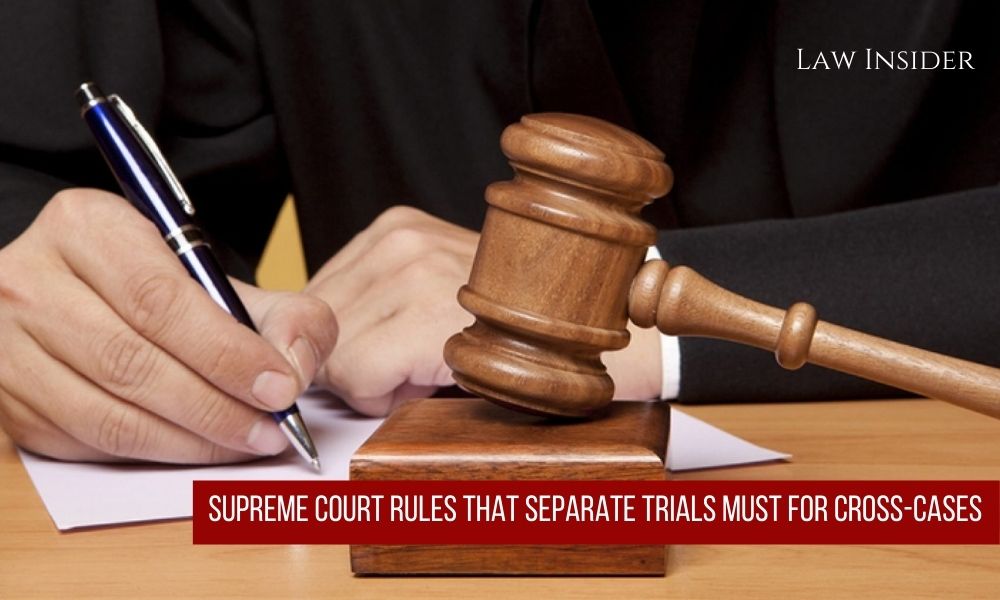Chaini Parwani –
Published On: November 3, 2021 at 09:00 IST
The Supreme Court directed that distinct Trials must be conducted for Cross-Cases filed by two parties involved in an offence, even if the Prosecution witnesses are the same for both sides, as Law forbids taking into consideration evidence in one case for the Cross-Case.
A Bench comprising of Justices DY Chandrachud, Vikram Nath and BV Nagarathna while criticizing the Madras High Court for determining two appeals arising from one incident and deciding it on the basis of evidence recorded in one case, stated, “So far as the law for trial of the cross cases is concerned, each case has to be decided on its own merit and the evidence recorded in one case can’t be used in its cross case.”
Further Justice Nath stated that only the evidence that is available on the record of the case has to be considered and that the only caution is that both hearings should be conducted simultaneously or in case of the Appeal, they should be heard simultaneously.
In a customs seizure case, there were two sets of Accused and the Trial Court had tried them distinctly and discharged the Accused.
However, when the Revenue Department filed Appeals against the dismissal, the High Court had then reviewed both Appeals simultaneously and convicted the Accused persons in both the cases based on the evidence in one of the two cases.
Additional Solicitor General Vikramjit Banerjee claimed that as the evidence is the same in both the cases, no prejudice can be alleged by the Accused.
The Bench further while rejecting the argument observed, “Whether prejudice or not, the fact remains that the HC committed an error of law in dealing with the evidence of one Trial for deciding both the appeals arising out of two separate Trials.”
The Supreme Court stated that solely because the seven Prosecution witnesses were not different in both the cases, it doesn’t conclude that the evidence was alike and identical because in the Oral Testimony, the Examination-in-Chief and the Cross Examination are equally important and crucial.
Further the Supreme Court observed that “Even if the examination-in-chief of all the seven witnesses in both the cases, although examined in different sequence, was the same, there could have been an element of some benefit accruing to the accused in each case depending upon the cross-examination which could have been conducted maybe by the same counsel or a different counsel.”
The Supreme Court highlighted that the same witnesses could have discharged distinctly in different Trials against different Accused discretely depending upon the involvement or/and culpability of such Accused and further remanded both the Appeals to the High Court for further examination.
The Bench stated culpability of any Accused cannot be determined on the basis of any evidence, which was not recorded in his existence or his Advocate’s presence and for which he did not get a freedom of cross-examination, until the case falls under exceptions of Law.
Click here to read/download the Order
Also Read: Delay in Trials – A Disgrace to Indian Law System
Speedy Trial – Role of Judiciary and Legislature

